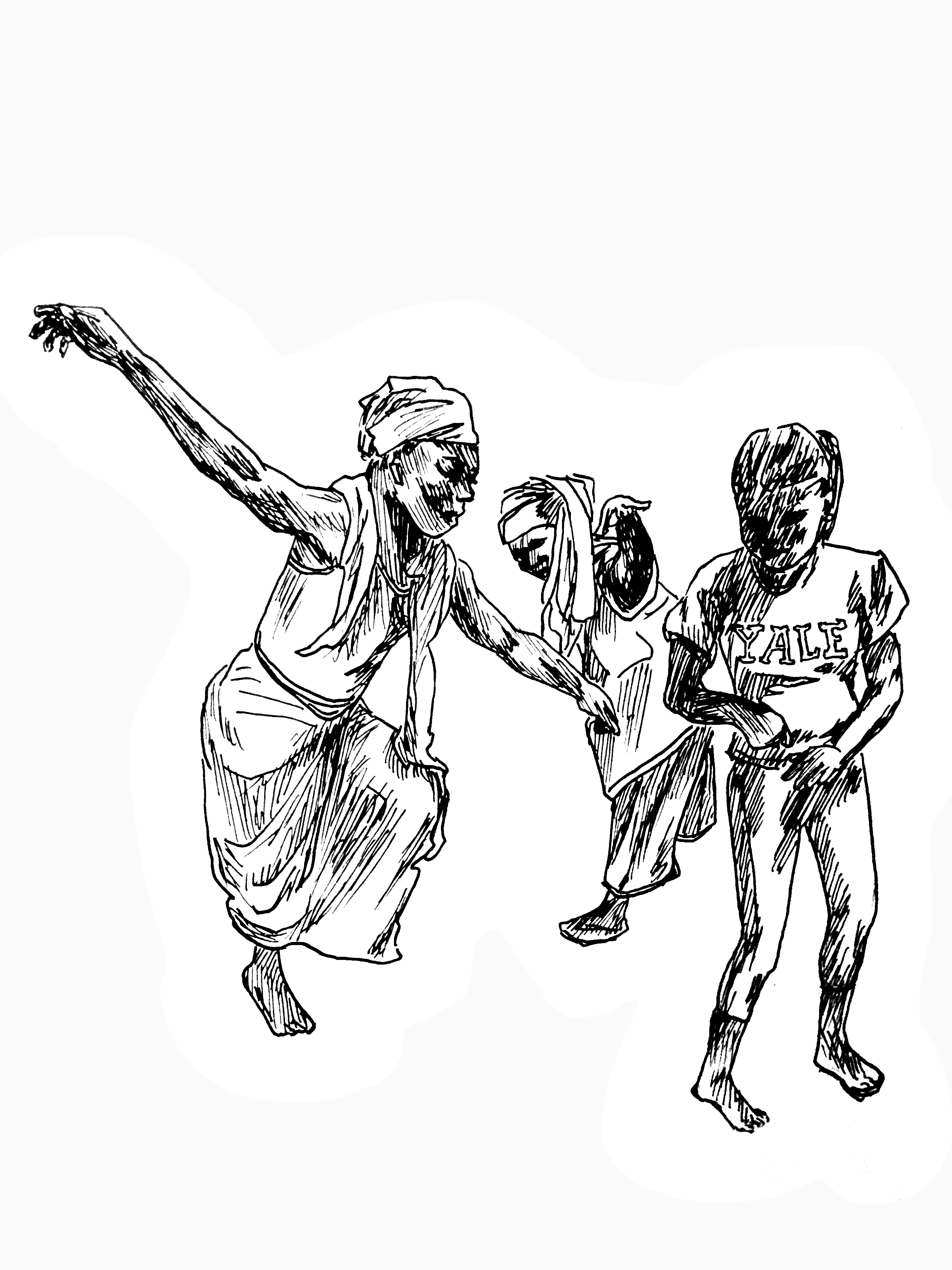
There is a class at Yale where we begin by taking off our shoes and walking back and forth with our eyes closed. Soft music wafts in and out, and our teacher, Lacina Coulibaly, snaps his fingers to keep our steps on track. Three steps forward, three steps back. Forward, back. Each contact our bare feet make with the wooden floor is slow and intentional. I walk all day but somehow this is the only walking that matters, when my eyes are closed and thoughts drift away and all I am left with is each sticky foot pressing down in time with Lacina’s snaps. Slowly our meandering becomes rhythmic steps, which flow into stomps and leaps from side to side, and we begin the myriad of hand flicks and hip shakes and arm twists that is West African dance.
I tried this for the first time on a muggy spring morning in Woodstock, New York, a town which never quite moved past its hippy stardom of the ’60s. It was my mother who convinced me to drive out to Woodstock to the class with her. After years of hearing about it from our neighbor, she was finally giving West African dance a try. Through some stroke of luck, or perhaps bribery, I rose out of the depths of my early teenagerdom and agreed to join. A pale wrinkled woman in a velvet leotard and baggy cheetah-print pants opened the door to greet us.
“Hi, I’m Carol. If you’re here for West African dance you’re in the right place,” she explained.
My mom asked where everyone was. It was 10:57 and the class started at 11.
“Oh, don’t worry. No one comes on time,” Carol replied with a grin.
Fifteen minutes later, everyone had shuffled in, three men were pounding on drums with their palms and we were twisting our way across the floor, shaking our hips and chests in a way I had never seen or done before. In Carol’s class, and many others like it, the best dancers are in the front of the room, the worst behind, and we dance across the floor as a pack, forward and back. I flailed wildly in the back, tripping over my feet and narrowly avoiding hitting others with my stray arms, trying my best to keep up in a room of middle aged white women who were all somehow really good at this.
Somewhere between the sticky sweat, the tired limbs and the exuberant grin with which I always ended the class, I found the resolve to keep coming back, again and again. By the time I graduated high school I still hadn’t graduated from my place in the back of the room, awkwardly flailing my arms. But the drums beating polyrhythms, the multicolored patterned skirts, the encouraging claps and shouts all made it okay that I still sucked.
When my friend told me that there was not only a West African dance class at Yale, but that it also counted as a humanities credit, I jumped onto my sofa for joy and immediately signed up. The professor, Lacina Coulibaly, is a professional dancer from Burkina Faso. He dispenses a mix of traditional and modern West African dance steps, perspective on the cultural climate that the dances grew out of and life lessons that always tie back to dance. But we never begin without walking barefoot with our eyes closed, back and forth across the floor.
There is a quote we study in Zen Buddhism that is attributed to Dogen, a thirteenth-century Japanese Buddhist teacher: “To study the way is to study the self. To study the self is to forget the self. To forget the self is to realize the ten thousand things.” As I study dance the urge to excel and be good at things, or even just not to suck at things, drops away and what I’m left with is the sweet feeling of sticky feet touching down on the ground, nothing more, nothing less.
In African dance classes back at home in upstate New York, I still dance in the back. Carol, who is well past retirement, twists and throws her frail body across the floor in moves I can only imagine I’d ever be able to execute. On the last class I went to before coming back to school, as we were dancing a particularly involved section of a dance called yankadi, for the first time in my life I had the thought that I was so happy even my full smile couldn’t express my joy. So I kept dancing.







